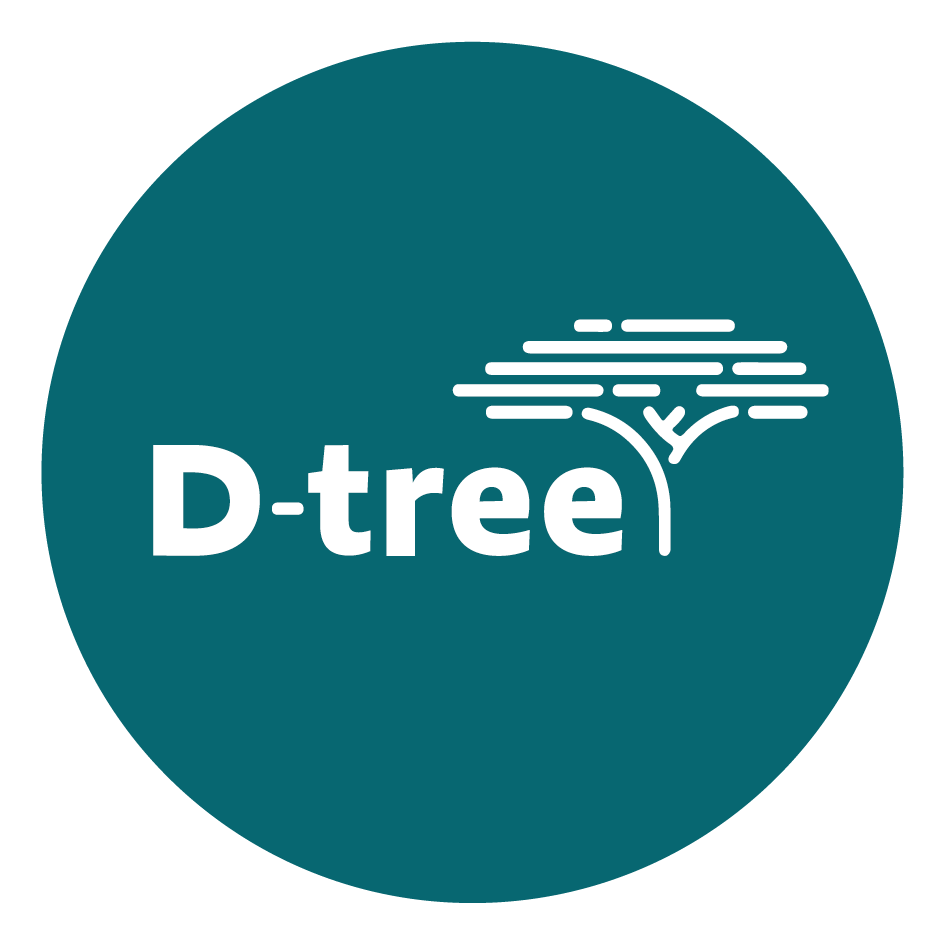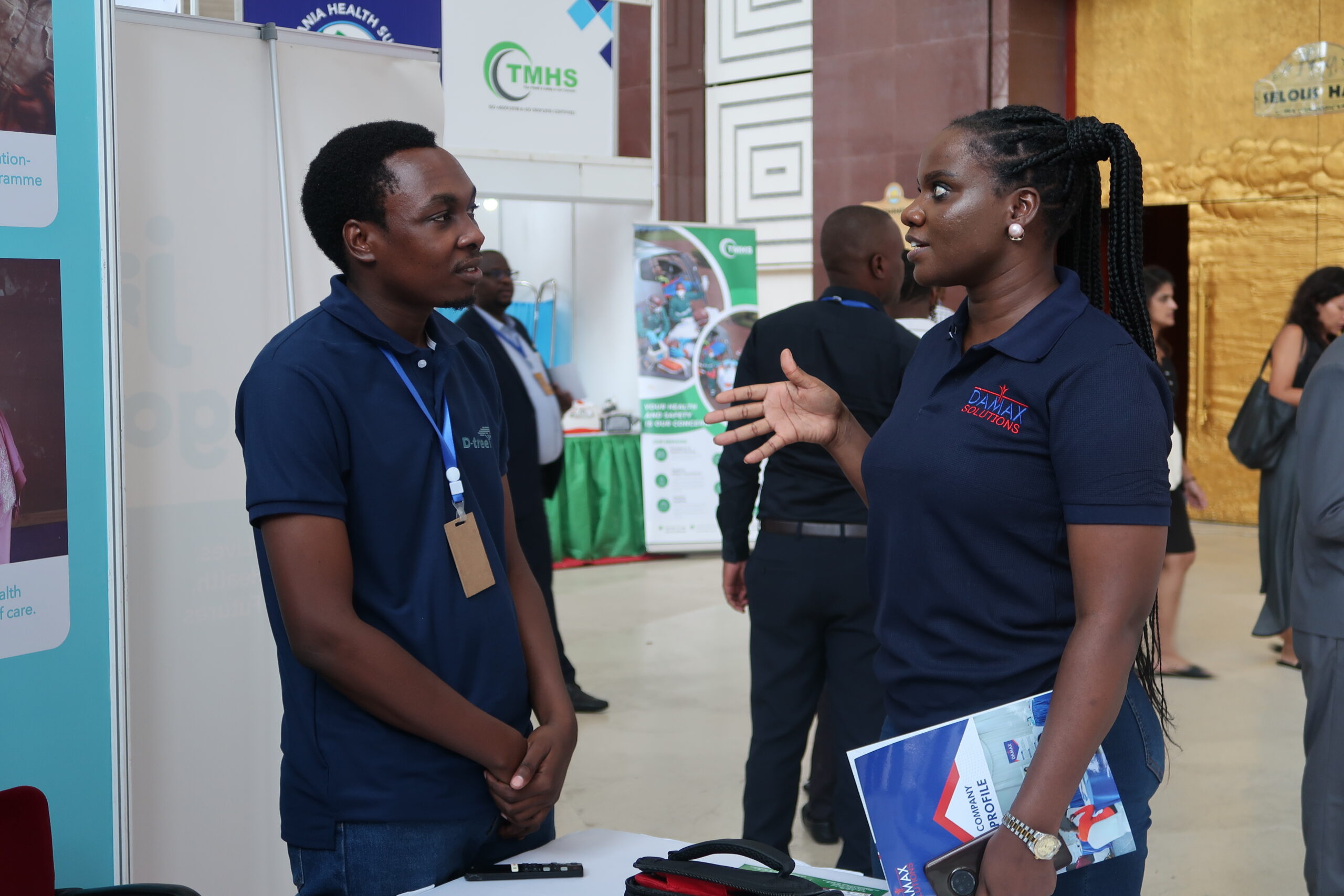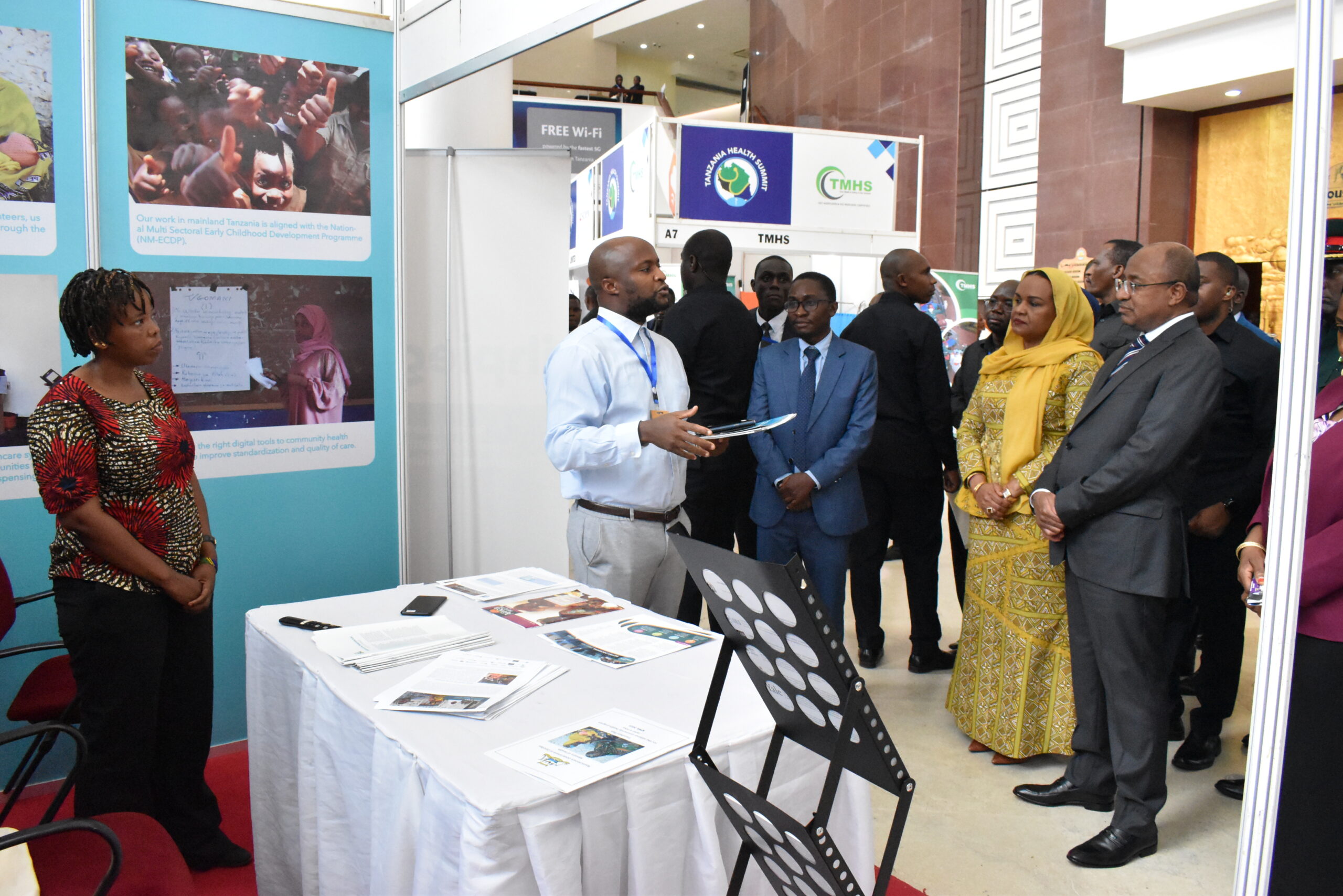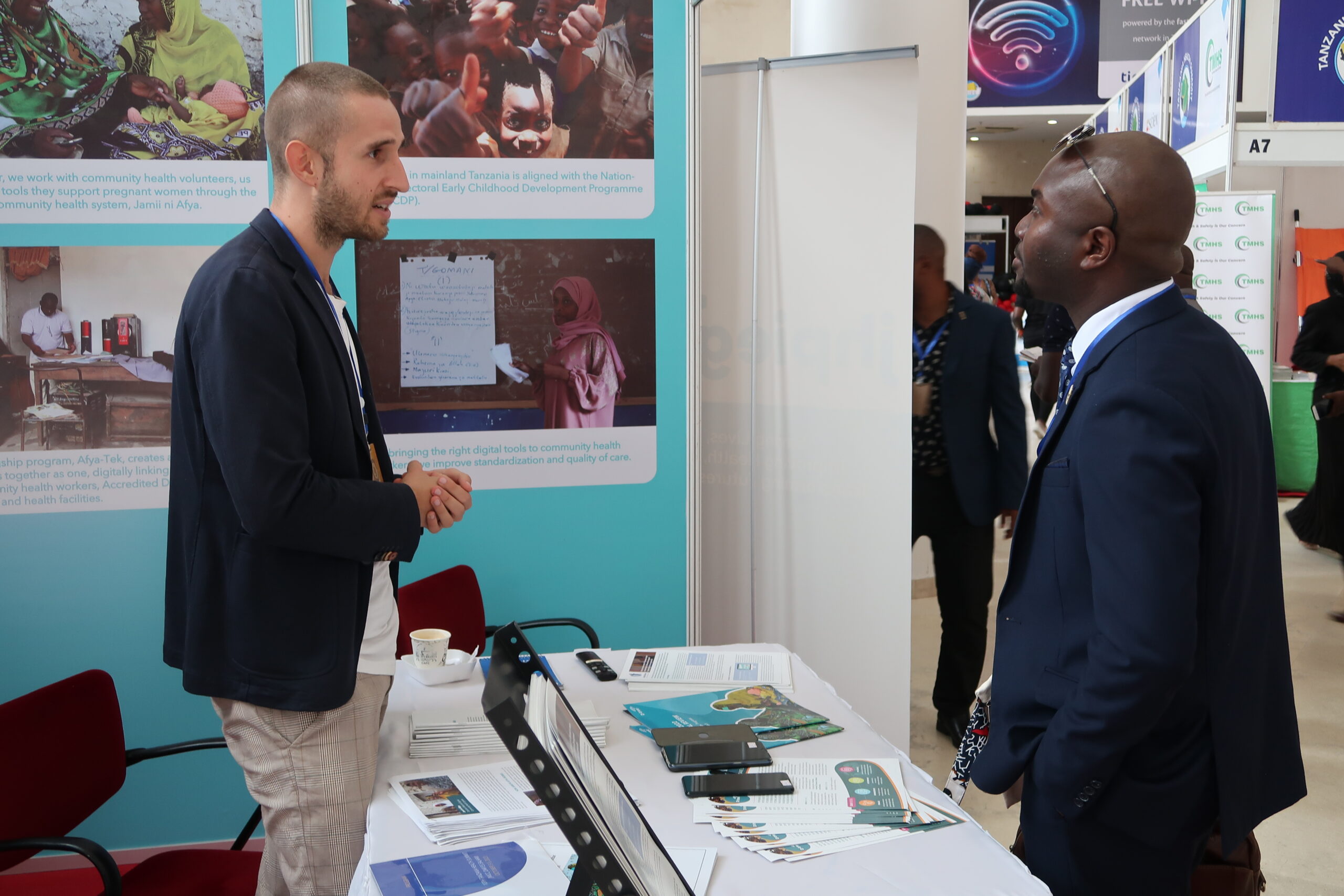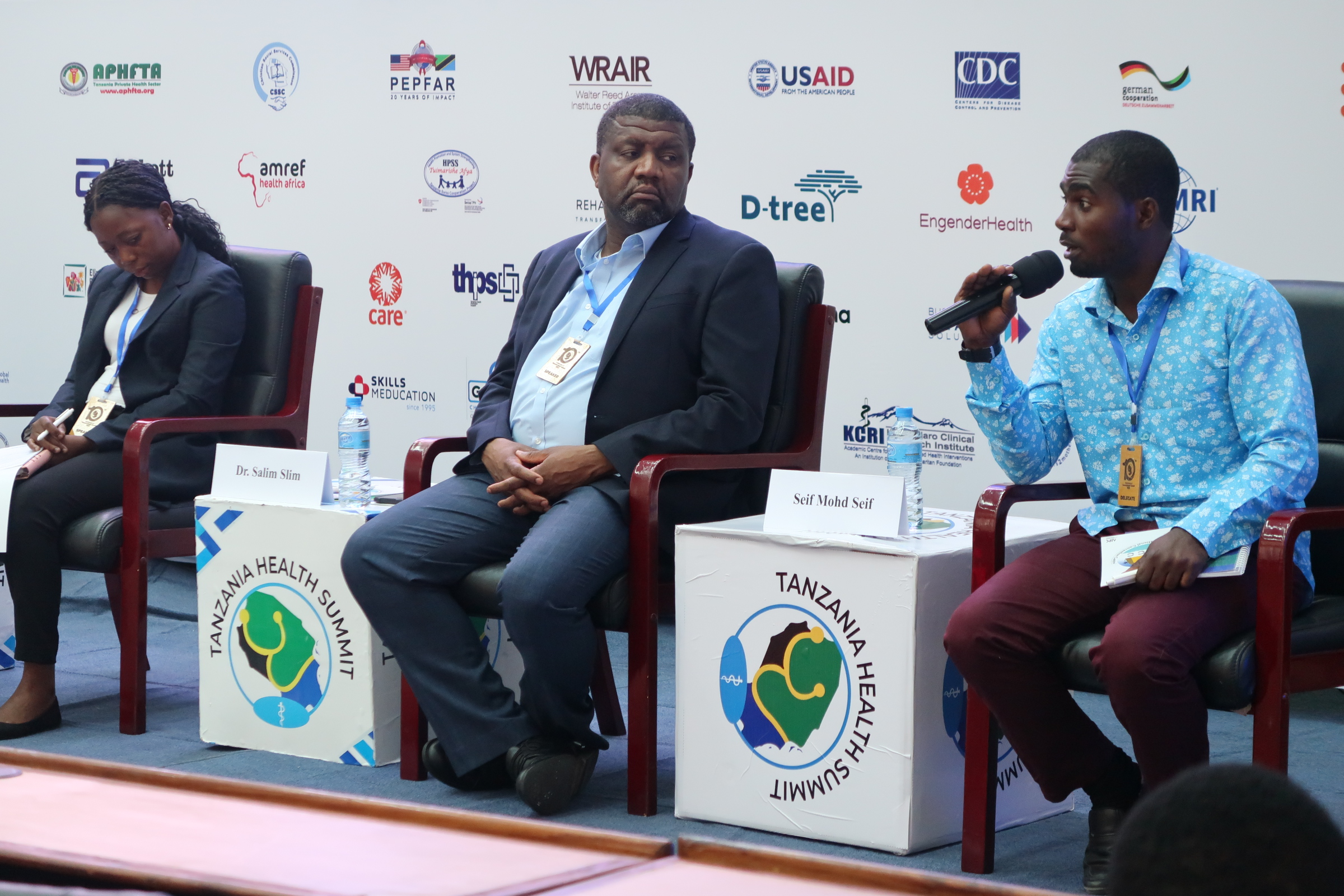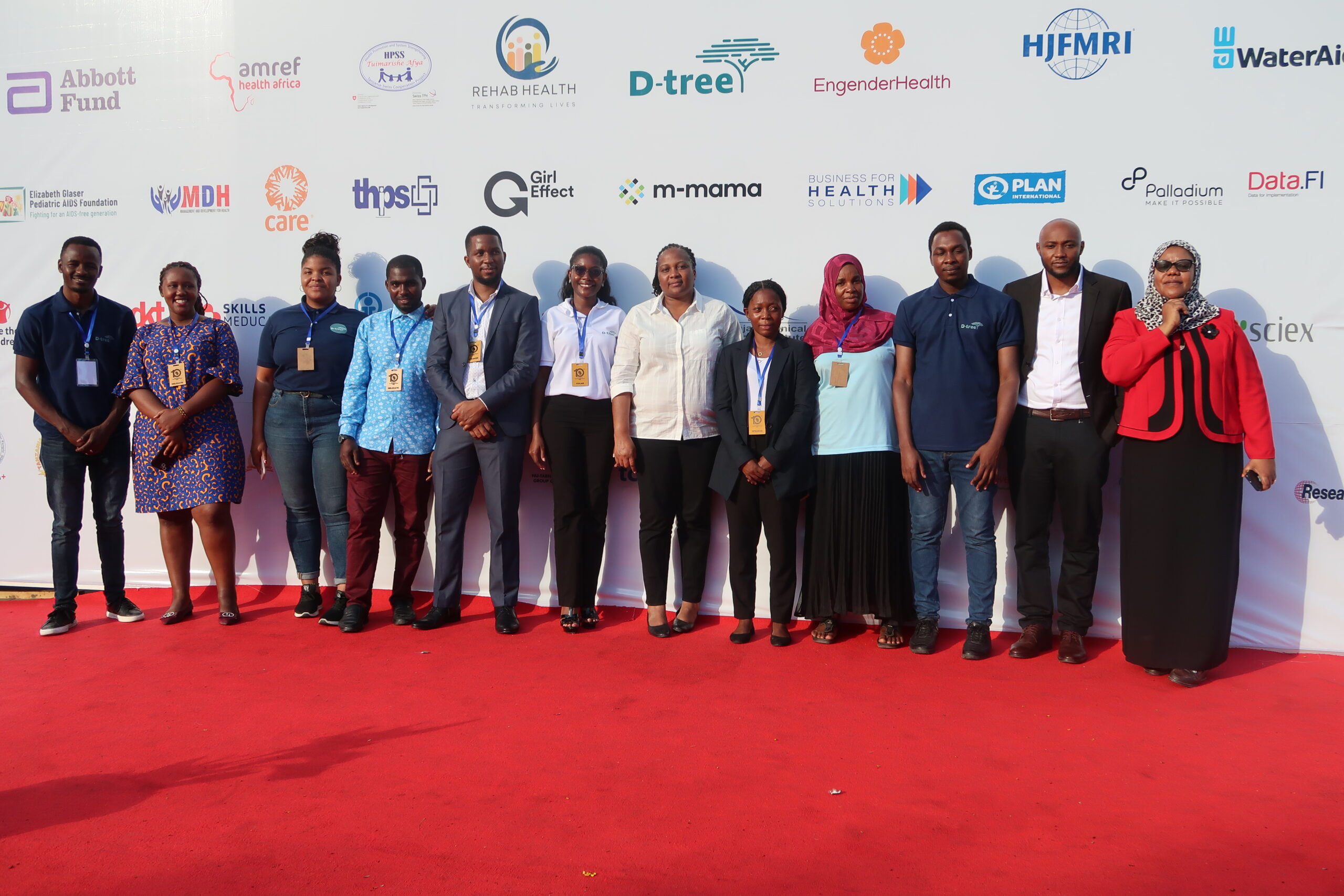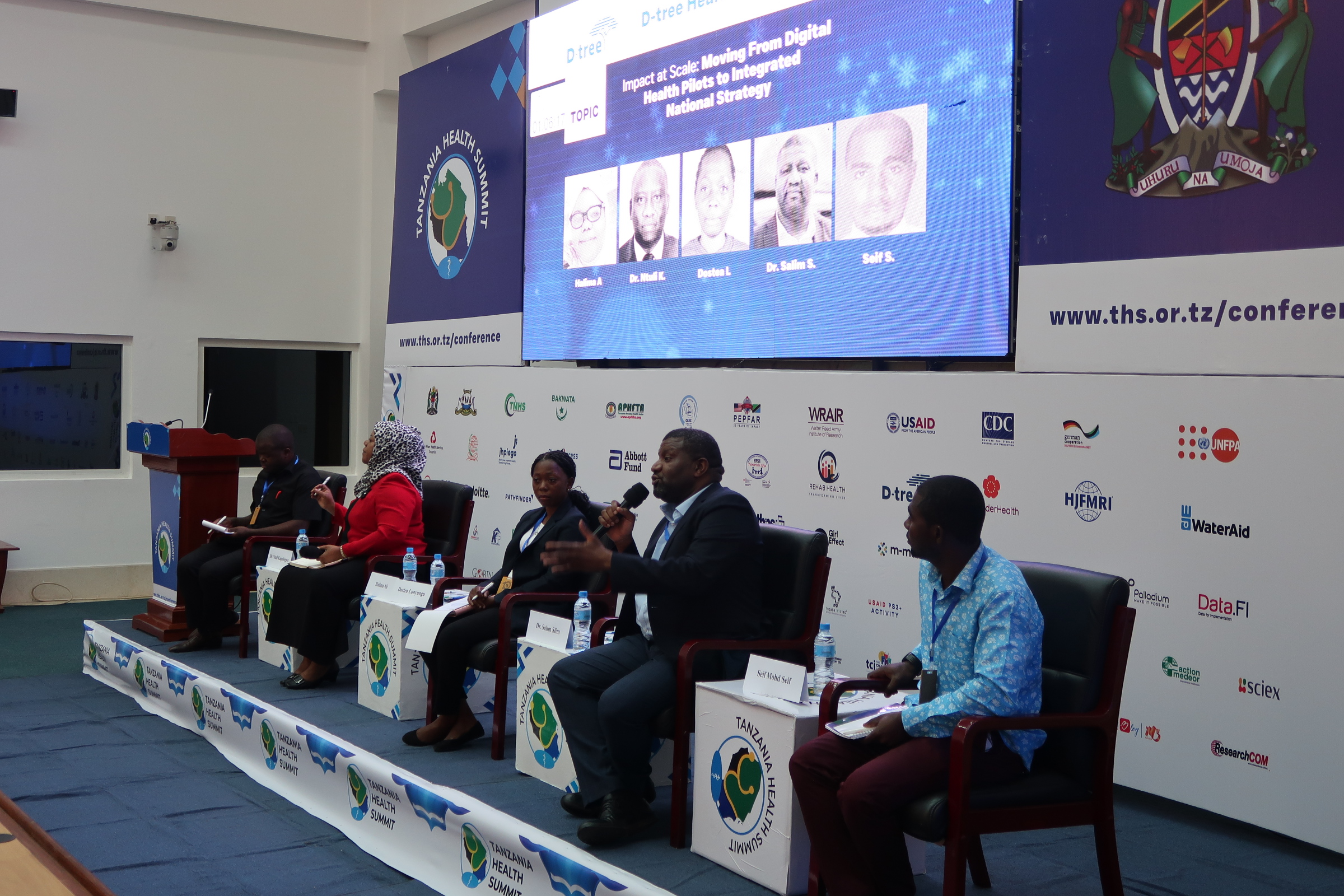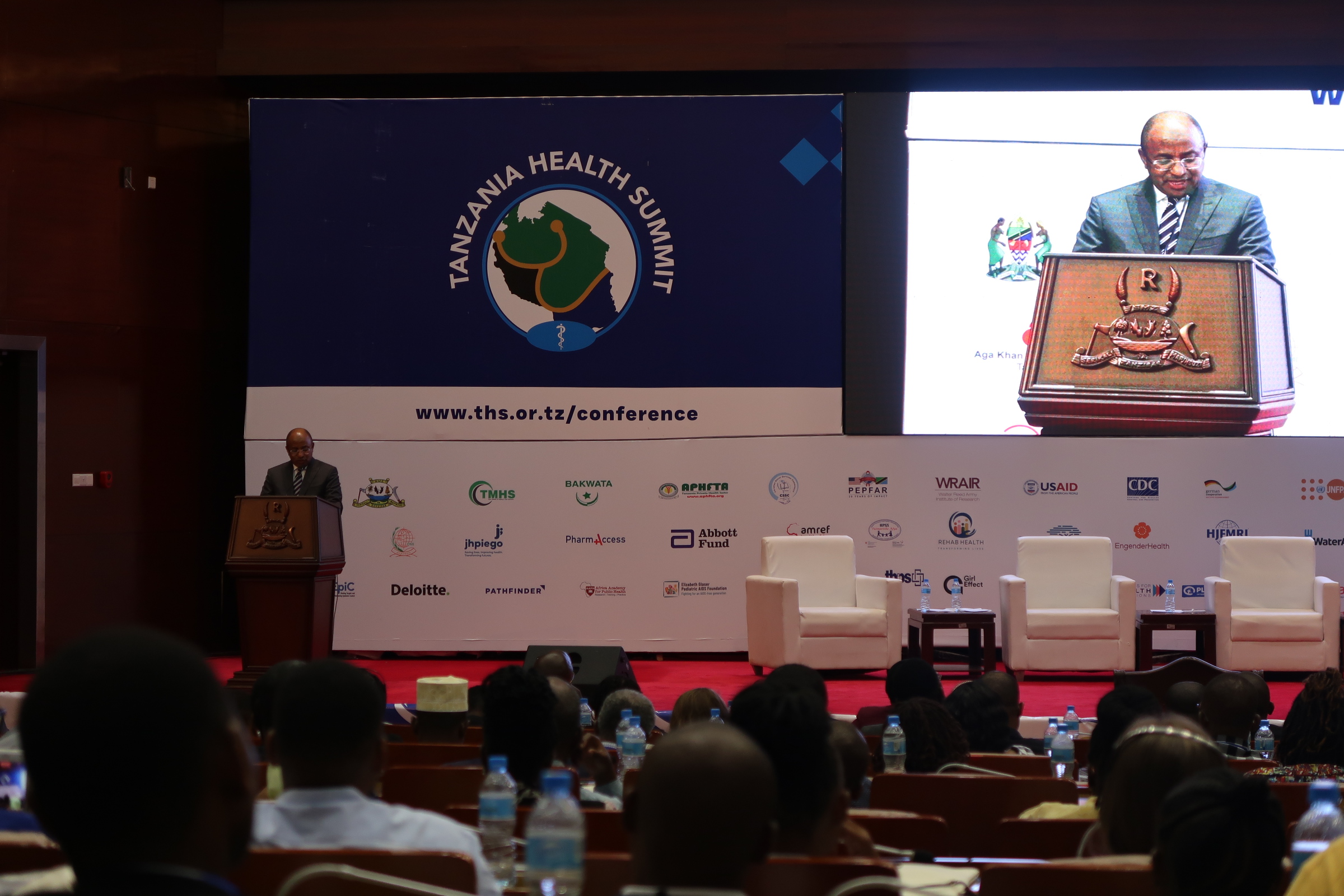The 10th Tanzania Health Summit took place in Dar es Salaam 3-5 October. The theme, “Strengthening Health Systems for Universal Health Coverage, focusing on Primary Health Care,” resonated deeply with D-tree’s vision of everyone getting the care they need to live happier and healthier lives.
The summit was an excellent opportunity to better understand the direction of the key Ministries from both Mainland Tanzania (Ministry of Health and PO-RALG) and Zanzibar (Ministry of Health) towards strengthening the access, quality, and delivery of primary health care services in the country. It was also interesting to exchange learnings, observe emerging trends, and share innovative ideas with other key health actors.
D-tree hosted a Community Health Worker symposium, showcased our work in a booth, and presented three abstracts. While the usual busyness has already started to kick in and the momentum of the summit is fading, we want to share some of our key takeaways and learnings from the biggest health summit in Tanzania.
There is an ambitious commitment towards strengthening existing community health worker programs. Community health workers (CHWs) or sometimes known as community health volunteers (CHVs), were recognized for the vital role they play in ensuring that health care services are scaled to hard-to-reach areas so that no Tanzanian is left behind. They have significantly contributed to capturing and referring sick people to health facilities, promoting healthy behaviors, and notifying authorities of outbreaks in the community. Conversations around professionalizing and integrating community health workers into national systems were a recurring theme in several sessions. D-tree is excited about the recognition and momentum that the community health workers are receiving and what it means for the future of such programs.
With the Jamii ni Afya program establishing a national cadre of community health volunteers in Zanzibar, spearheaded by the Ministry of Health, it is a case for success to learn from as Mainland Tanzania works towards a similar goal. The good news is, the government in Mainland Tanzania announced plans to introduce a new integrated and coordinated community health workers programme, starting in January 2024, with the goal of recruiting 150, 000 CHWs over three years. These are efforts to revamp and address challenges in operating CHW programs. Excitedly, the government plans to use the lessons learned from our flagship program in Mainland Tanzania, Afya-Tek, leveraging digital tools to support CHWs in delivering holistic and comprehensive health care services at the community level.
While D-tree welcomes these developments, we also understand that these programs are complex in funding, coordination, integration, maintenance, supervision, and monitoring. The valuable insights from CHWs during the symposium reminded us of the challenges they face, including poor compensation, unmanageable workload, missing career advancement opportunities, and outdated and non-functional tools/equipment. These insights served to highlight the importance of engaging CHWs at all stages, from program design to implementation and monitoring; their input and co-creation are essential, considering their proximity to the communities.
Many health stakeholders are currently implementing or using CHW programs. Building on the commitments raised at the Tanzania Health Summit, we have a great opportunity to seize by aligning ourselves towards strengthening community health worker programs and elevating their immense potential to contribute to Universal Health Coverage.
